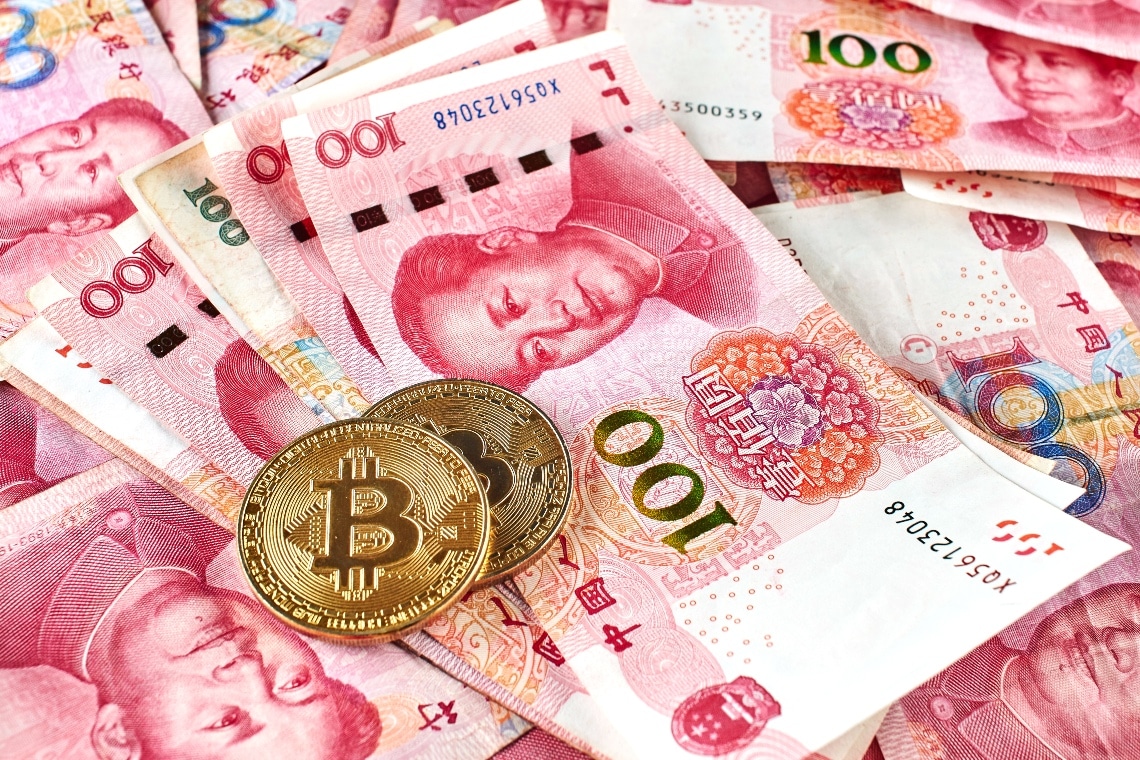There is a connection between Bitcoin and digital yuan. Both are non-physical currencies, namely digital, and both are attracting attention for multiple reasons.
Bitcoin in the last month has seen its price soar, reaching a peak of $34,000 (at the time of writing this article). The question is, will the digital yuan be able to compete with Bitcoin? The answer, based on what little is known about the digital yuan today is: no.
Nevertheless, there seems to be a more direct link between the yuan (the physical one) and Bitcoin. In fact, China’s official currency has been increasingly depreciating. This may have prompted many investors to seek refuge in Bitcoin, which has since risen in value. According to an old report by Bloomberg, this was also helped by a ruling by a Chinese court that admitted that Bitcoin has a legal value, linked to its status as a scarce asset.
Will the digital version of the yuan be able to affect the price of Bitcoin? In reality, the two entities are very different to compete with each other. Chandler Guo, a Bitcoin mining pioneer in China, explained his point of view to the BBC: China’s digital currency, also known as DCEP, will be hugely successful because it can also be used by 39 million Chinese living outside of China. If 39 million people outside China start using the digital yuan, it is bound to become a global currency. And a global currency will compete with the dollar and all those electronic payment systems that focus on the cross-border sector.
What do the digital yuan and Bitcoin have in common
What do these two currencies have in common? Blockchain technology, which is the basis of both. And here the similarities stop.
In fact, the Chinese DCEP cannot even be considered a real cryptocurrency because the essence of cryptocurrencies is decentralization. Instead, the DCEP will be issued by the most centralized entity there is: the state, and to be precise a state that has 2 billion inhabitants. This makes it potentially stronger than Bitcoin and any other state digital currency, because it will certainly have a more widespread diffusion. Unlike Bitcoin, it will be a real currency and not also a store of value, as BTC is becoming. Moreover, it won’t suffer from the volatility typical of the queen of crypto, being fully analogous in value to its paper version.
It may be a coincidence that just as the tests for the digital yuan are underway, Bitcoin is growing in price. Some theses argue that the advent of a highly centralized currency is another reason that is convincing the Chinese to migrate to Bitcoin, to protect (to the extent possible) their transactions from the eye of the government and at the same time create a source of investment other than the national currency.
It won’t take long for this hypothesis to be confirmed. 2021 will likely be the year when the digital yuan sees the light of day. Only then will it be possible to see its reflection on the price and use of Bitcoin in China. Last but not least, the launch of China’s digital currency will probably definitively trigger the rush for digital state currencies by the world’s other strong economies as well, with the United States and Europe at the forefront.



